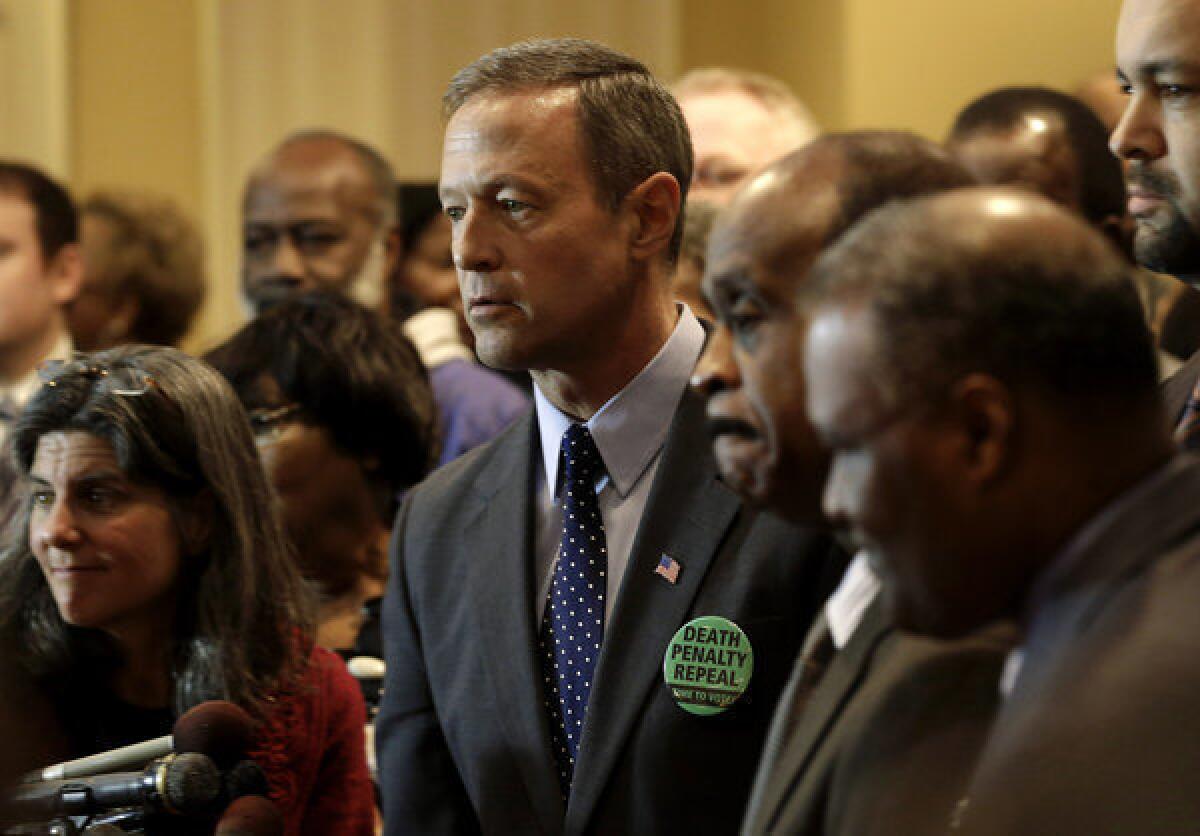Maryland takes step to end capital punishment

One house of the Maryland Legislature voted on Wednesday to abolish capital punishment, a significant step in the nation’s ongoing reevaluation of whether to use execution as the ultimate punishment.
In a 27-20 vote, the Maryland Senate chose to end executions and replace the death sentence with life in prison without parole. The measure now goes to the state’s other legislative chamber, the House of Delegates, where it is expected to pass, and then to Gov. Martin O’Malley, who pushed for the bill and has said he will sign an abolition.
If the bill is approved, Maryland will become the 18th state to abolish the death penalty and the sixth to act since 2007.
Maryland has executed five inmates since 1978, when it reinstated the death penalty, and hasn’t executed anyone since 2005, according to the Death Penalty Information Center, an organization that opposes the death penalty. Maryland has five inmates on death row and hasn’t imposed a death sentence since 2005.
“The vote in the Maryland Senate to end the death penalty is in line with an emerging trend away from capital punishment around the country,” said Richard Dieter, executive director of the center. “Death sentences and executions have sharply declined, and now states are taking the final step toward eliminating the death penalty.”
The death penalty has long been controversial for a number of reasons, including philosophy and application. The U.S. Supreme Court in 1976 upheld the death penalty, leading to some states reinstituting the punishment.
But opponents argued that the death penalty has little, if any, deterrent effect, that even with such a punishment, crimes of violence continue. Opponents also argue that the punishment more often is meted out against people of color and especially in cases where the victims tend to be white.
In Maryland, the NAACP, a civil rights organization, backed O’Malley’s effort to end capital punishment.
There have also been questions about executing people who are later found to be innocent after a more sophisticated scientific examination of evidence, including such ever more sophisticated technology as DNA-testing. A number of such cases have taken place around the country, including at least one recently in Maryland.
Proponents of the death penalty generally argued that society needs such an ultimate sanction in cases of especially heinous crimes. In the Maryland debate, proponents focused on the 2009 cases of an 11-year-old girl who was kidnapped, sexually assaulted and then murdered as one such dreadful crime that deserves the death penalty.
ALSO:
At Oberlin College, spate of hate incidents spurs reflection
Aaron Swartz is gone, but his story refuses to go away. Why?
More than 550 wolves taken by hunters and trappers in Rockies
More to Read
Sign up for Essential California
The most important California stories and recommendations in your inbox every morning.
You may occasionally receive promotional content from the Los Angeles Times.










